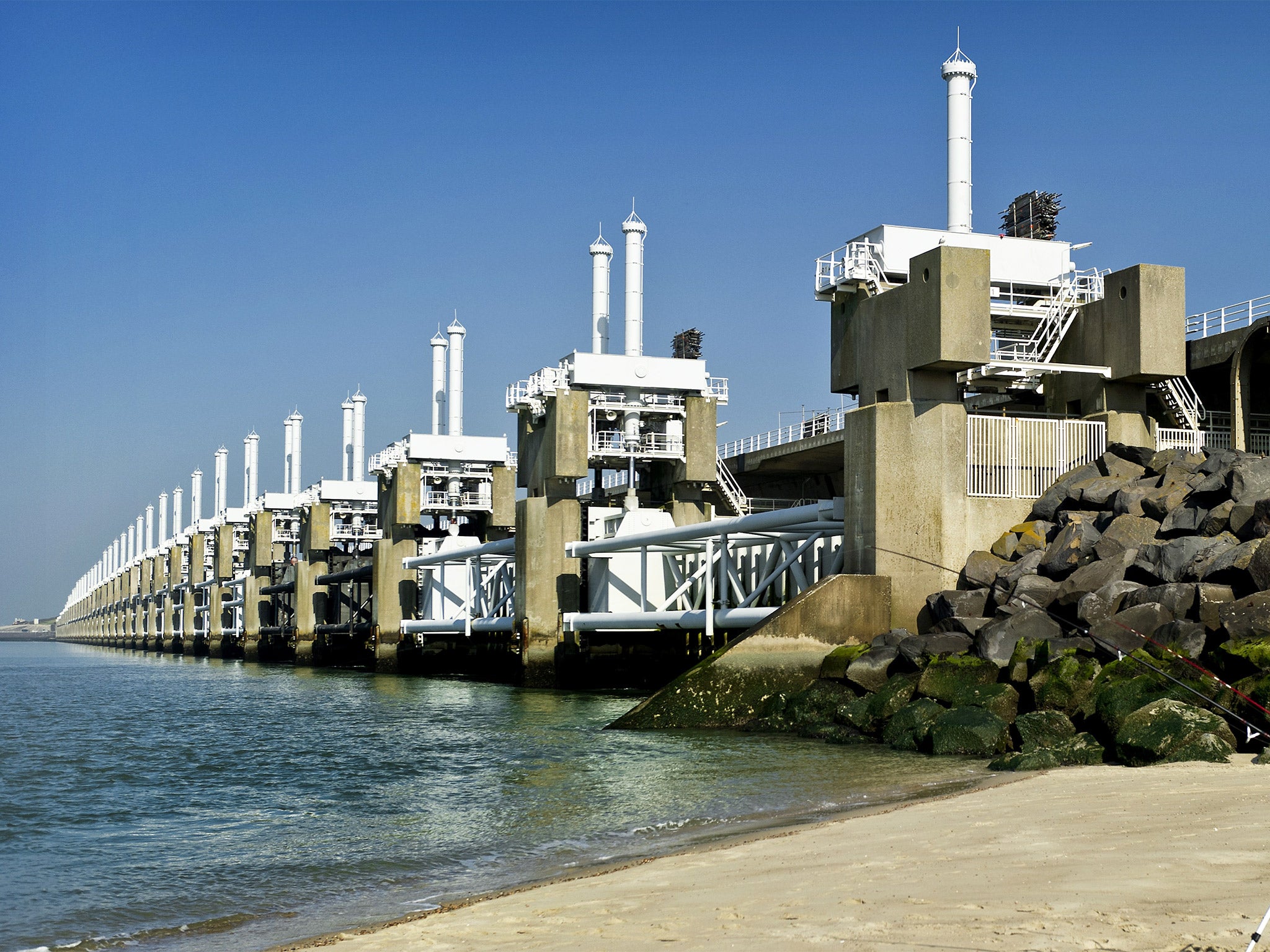UK to take lessons from Dutch on how a low country can avoid flooding
Formal agreement between two countries to share expertise will be signed later this year

Britain will take lessons in combating flooding from the Dutch after a formal agreement is to be signed by the two nations to share expertise.
The Dutch infrastructure agency, Rijkswaterstaat, will sign the cooperation agreement with the Environment Agency (EA) later this year.
In contrast to land management in the UK – which has been criticised for protecting farmland above towns downstream – the Dutch are running a project to give rivers more space to flood safely at 30 locations throughout the country.
The scheme, called “Room for the River”, is relocating 200 families, including 50 farmers, and implementing new flooding safety calculations.
The EA said it has provided advice on flood forecasting and warnings system whilst gaining insight on the Dutch approach to planning and coastal risk. In the Netherlands, old measures planning for water levels every 1,250 years, are being discarded, with €8bn (£5.8bn) spent to reinforce 1,100km of dikes in a new flood protection programme.

Dutch experts stress that different land layout and water threats mean their measures cannot simply be copied in the UK. But after offering help and equipment in 2013/2014, Dutch-British collaboration will be formalised this year in a “memorandum of understanding”. A spokeswoman for the EA said: “There is a long history of the two governments sharing knowledge and best practice on flood and coastal risk management. There are significant differences in geography, economics and legislation that inform each country’s approach.”
Roughly half of the Netherlands is less than a metre above sea level and 17 per cent is reclaimed from the sea, but in the past 60 years, not a single person has been killed in floods in the country.
“At the end of 2013 – just like recently – the UK was hit by extreme rainfall, which led Rijkswaterstaat to provide assistance,” explained Joris Schouten, a spokesman for the agency. “Since it has become clear that there are other issues where we can learn from each other in addition to water safety, the Rijkswaterstaat and the Environment Agency are preparing to collaborate on more fronts.”
Richard Jorissen, managing director of the Dutch Flood Protection Programme, said: “It’s hard to transfer our network to the UK and British situation… but I’m very positive about international cooperation and collaboration.”
Join our commenting forum
Join thought-provoking conversations, follow other Independent readers and see their replies
Comments
Bookmark popover
Removed from bookmarks